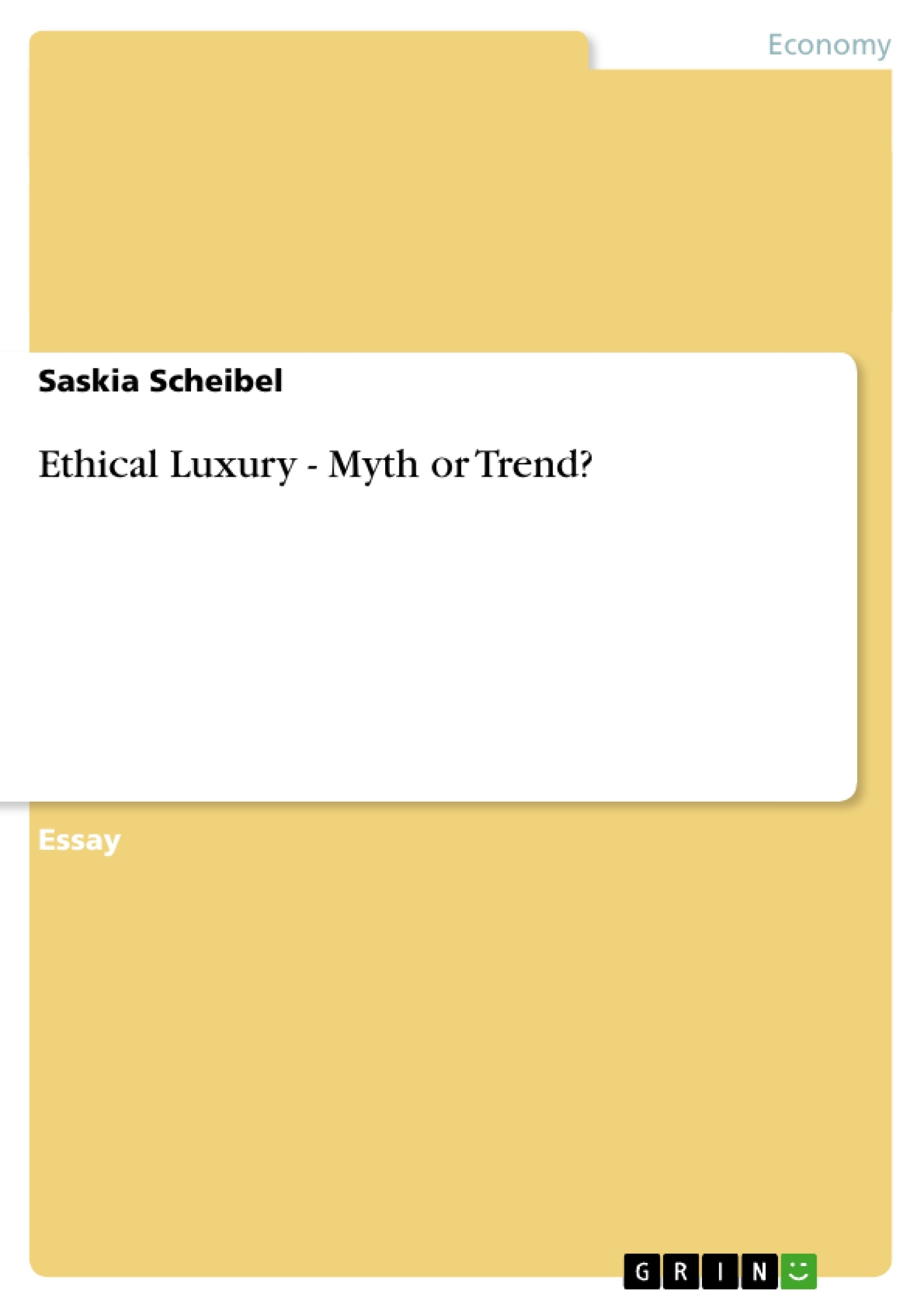“Ethics are in vogue” is the conclusion drawn by New York Times journalist Alison Smale (2007) regarding the outcome of the 2007 IHT luxury conference. This claim is based on the assumption of a new emerging type of luxury consumer whose buying decision seems to depend on the ethical performance of manufacturing companies (Gonzalez, 2009). Is this notion merely wishful thinking or does it actually fit empirical reality, since the latter would invalidate the saying ‘the devil wears Prada’. The particular question of this discourse therefore is, whether consumers really care about ethics when it comes to the consumption of luxury goods or whether the very nature of such products leads to the suppression of any potential ethical issues related. The key to investigating this question is the focus on behaviour rather than being misled by good attitudes or intensions. In this context, it is crucial to evaluate contemporary ethical consumption in general before applying the concept to the specific characteristics of the luxury industry.
Inhaltsverzeichnis (Table of Contents)
- Introduction
- Ethical consumption
- Luxury
- The myth of ethical luxury
Zielsetzung und Themenschwerpunkte (Objectives and Key Themes)
This paper investigates the question of whether consumers prioritize ethical considerations when purchasing luxury goods. It explores the tension between ethical consumption and the inherent characteristics of luxury products, such as exclusivity and status. The study seeks to understand if ethical luxury is a viable concept or merely a myth.
- The growing phenomenon of ethical consumption
- The attitude-behaviour gap in ethical purchasing
- The intrinsic characteristics and value dimensions of luxury goods
- The conflicting nature of ethical consumption and luxury values
- The challenges and limitations of promoting ethical luxury
Zusammenfassung der Kapitel (Chapter Summaries)
Introduction
The author introduces the central question of the study, which explores whether consumers prioritize ethics when purchasing luxury goods. The study focuses on understanding the concept of ethical consumption and its application to the luxury industry.
Ethical consumption
This chapter defines ethical consumption and examines its growing relevance in consumer behavior. It discusses the various factors influencing ethical purchasing decisions, including attitudes, product availability, and price sensitivity. The chapter highlights the prevalent attitude-behavior gap, where consumers report positive attitudes towards ethical consumption but often fail to translate these attitudes into purchasing behaviors.
Luxury
This chapter explores the nature of luxury goods and their value dimensions. It examines the different motivations behind luxury consumption, including status seeking, financial investment, and self-expression. The chapter discusses the changing landscape of luxury consumption, where a more diverse consumer base demands greater consideration of ethical issues.
The myth of ethical luxury
This chapter delves into the complexities of reconciling ethical values with the characteristics of luxury goods. It analyzes the inherent tension between personal satisfaction and social responsibility in luxury consumption. The chapter discusses the challenges of establishing ethical luxury, including the dominance of large luxury brands known for unethical practices, the lack of information regarding ethical production, and the perception of ethical products as lacking glamour.
Schlüsselwörter (Keywords)
The primary keywords and focus topics of this text include ethical consumption, luxury goods, attitude-behavior gap, ethical luxury, status seeking, social responsibility, brand image, product availability, and consumer behavior.
- Arbeit zitieren
- Saskia Scheibel (Autor:in), 2010, Ethical Luxury - Myth or Trend?, München, GRIN Verlag, https://www.grin.com/document/173579




